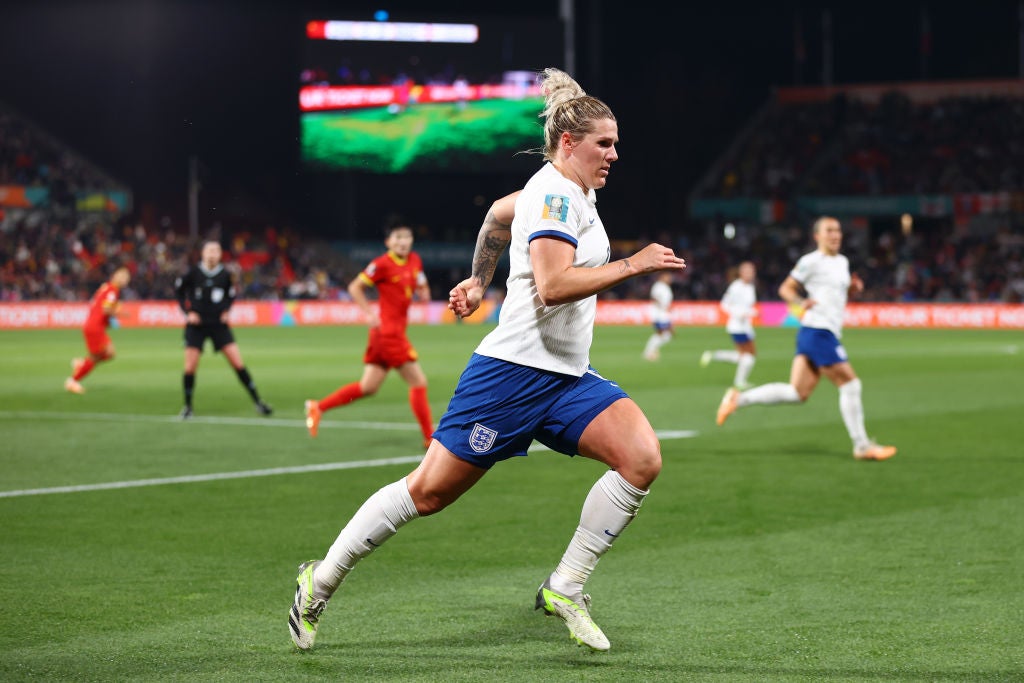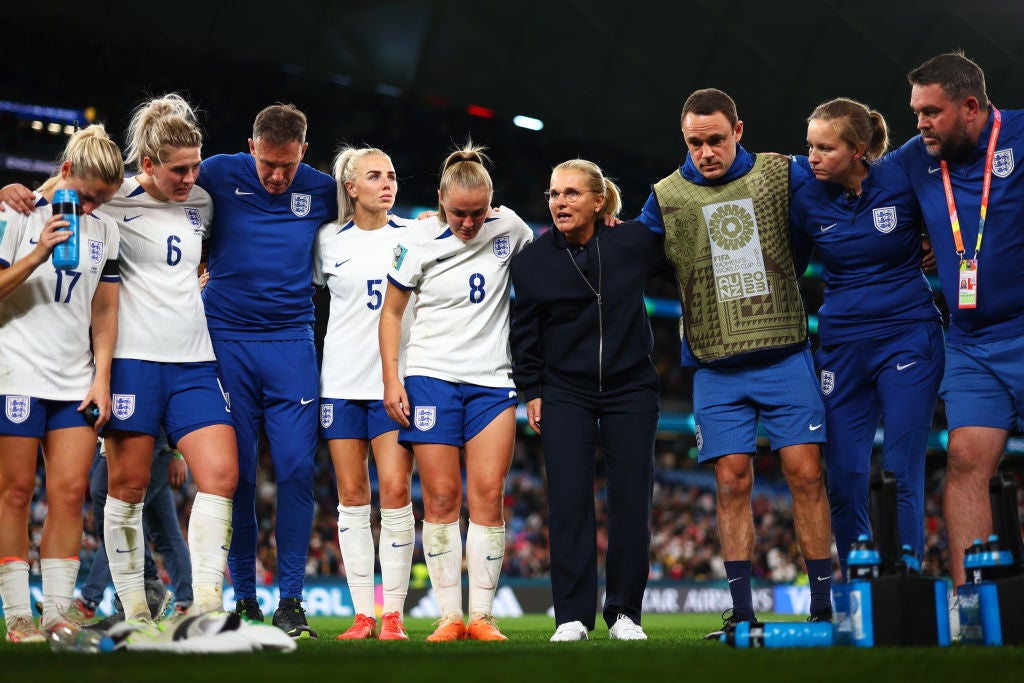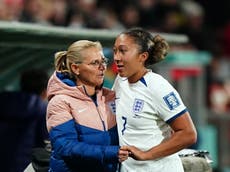Millie Bright on England captaincy: ‘I don’t give the orders - everyone has a platform’
The Lionesses centre-back explains the complexities of captaincy as England prepare to face Nigeria at the Women’s World Cup last-16

Your support helps us to tell the story
From reproductive rights to climate change to Big Tech, The Independent is on the ground when the story is developing. Whether it's investigating the financials of Elon Musk's pro-Trump PAC or producing our latest documentary, 'The A Word', which shines a light on the American women fighting for reproductive rights, we know how important it is to parse out the facts from the messaging.
At such a critical moment in US history, we need reporters on the ground. Your donation allows us to keep sending journalists to speak to both sides of the story.
The Independent is trusted by Americans across the entire political spectrum. And unlike many other quality news outlets, we choose not to lock Americans out of our reporting and analysis with paywalls. We believe quality journalism should be available to everyone, paid for by those who can afford it.
Your support makes all the difference.For Millie Bright the past few months have been arduous. A knee injury suffered in March threatened her with the possibility facing the same fate as her England teammates who have been forced to remain at home as the Lionesses look for World Cup success in Australia and New Zealand – but she put up with a “brutal” recovery to return in time to captain her country on the biggest stage.
Bright has big shoes to fill. She has not only been tasked with helping to ensure the solidity of England’s defence but she has had to take the armband from Leah Williamson, who was the leader on their European conquest last year but whose ACL injury has kept her out of the squad.
Captaining England at a World Cup sounds like a big ask, but Bright believes the role is far more complex than many may presume it to be. Sarina Wiegman has fostered an openness and desire for debate within the team that has changed the way things operate.
“I think sometimes it’s seen as the captain has to say the orders but it’s not like that at all,” Bright says, speaking before England take on Nigeria in Monday’s last-16 tie.
“Everyone is their own person and everyone’s got a platform to speak up and we learn from each other, no matter how many caps I’ve got compared to somebody else or the age [difference].
“While being the senior player you’ve got more experience to help, it’s important that everyone can speak up because we’re all here to learn.”
What, then, is the role of the captain if it is not to issue commands and act as the players’ representative to the wider setup to make sure their voices are heard? “It’s firstly about always showing up,” she says, “making sure everyone’s got the confidence and the mentality to step out, play their game and express themselves and show who we are, show who they are on the pitch.

“Secondly, when the going gets tough you keep the belief, keep the calmness, and always find a way to win.”
It is of little surprise, therefore, that when Bright is quizzed about the captains she has adored the most that a player who performed such a role for Chelsea, her Women’s Super League club, and the England men’s team, comes to mind.
“John Terry was a big one for me. I think that the way he carried himself... he always stepped out on the pitch fearless and stepped up. Every team that he’s played in I think he’s done that and he’s led by example, his actions have spoken louder than his words. For me that’s definitely something I believe in as well.
“Off the pitch I think he’s a great human, he’s very caring. I know a lot from a personal level that he’s always given a lot to the [Chelsea] women’s team. On the pitch, without a shadow of a doubt.”
As England travelled to take part in the tournament Bright’s fitness was still a doubt; she hadn’t played in four months and was going to have to play her way back to fitness at a time where there was little room for complacency. The 29-year-old believes the hard work she had to put in to return in time has paid dividends.
“I knew that I would put myself in a position where I could compete and play 90 minute games in back-to-back games,” she adds.

“I think that that’s my mentality and character, but my rehab was brutal and I was put through my paces to make sure that I could withstand it. It’s part and parcel of the game. I feel great out on the pitch and I’ll rest, recover and repeat.
“The running, the running was brutal... When you have a short space of time it’s just about making sure you get up to speed, and make sure you’re body is in a position that you can actually return to training, and return to games.”
After three successive group stage wins all eyes are now on England as they look to Tuesday’s game. Success there would then set up a quarter-final tie with Colombia or Jamaica.
If England are to beat Nigeria then Bright’s signature level-headedness, her ability to keep her cool in defence, may very well be needed – and it’s a characteristic she attributes to the coaching of Chelsea boss Emma Hayes.
“I’d probably say [my calmness is] the biggest area of development where I’ve seen a lot of growth in myself. I think mainly through club level at first Emma for me has been a great mentor.
“At the back you have to take that role, you can see everything from behind and you’ve got to make sure you get yourself in check first to make sure you’re able to help the team. I definitely see that.”
If Wiegman once again opts for an unnatural back three as England take to the pitch in Brisbane then Bright, who often plays as a part of a similar setup for Chelsea, could be even more important than usual.
No matter how the defence is structured going forwards if Wiegman chooses to revert to her signature 4-3-3 formation given Keira Walsh’s possible return, it’s clear that the Lionesses will owe a lot to Bright’s talent and capability as a fitting leader if they manage to go all the way this summer.






Join our commenting forum
Join thought-provoking conversations, follow other Independent readers and see their replies
Comments